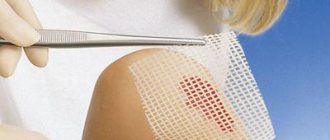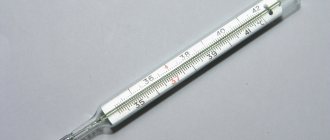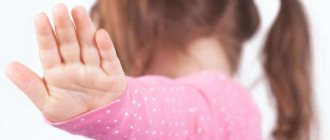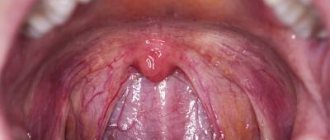What can trigger uncontrollable chest spasms?
First of all, the pediatrician will advise you to exclude the influence of external factors. If a 2-month-old child has a cough without fever, swelling and redness of the oral mucosa, then it is necessary to make sure that the baby does not have an allergic reaction. This can be done by removing any possible irritants from the room: soft toys, pillows (they collect dust), indoor plants, pets.
It is very important to make sure that the child does not choke. At 2 months, children still do not show much interest in toys, so the likelihood of a foreign body getting into the throat is minimal.
Parents should make sure that the airways are not clogged with saliva or food debris.
This happens if you position your baby incorrectly after feeding. A child at 2 months should be placed on his side.
Unfortunately, there is a risk that the cough is caused by an infection or viral infection. You should know that in infants the immune system works differently than in adults. Often ARVI or acute respiratory infections occur without high fever or runny nose. The disease may manifest itself as a dry, unproductive cough.
Causes of cough in infants
To identify the cause of a cough, you need to pay attention to additional symptoms.
When a two-month-old baby starts coughing, parents panic, especially if this is their first child and they have no experience caring for babies.
The most important thing to remember is that the diagnosis must be made by a pediatrician. Babies can cough for a variety of reasons.
Here are the most important ones:
- Infectious. Since the child’s body is not yet strong, the baby can “catch” an infection. Parents need to know that at 2 months the body does not react to ARVI in the same way as an adult. Most often, at this age, the infection does not cause fever or runny nose. The entire reaction may be limited to a cough. At this age, children often suffer from bronchitis, laryngitis, and allergies.
- Natural causes are those in which coughing occurs 2-3 times a day. This occurs because the baby is constantly in a horizontal position and food residue, dust, saliva, or perhaps the baby has burped and coughed up on the back wall of the throat. This cough is considered normal. Even adults cough up mucus or dust several times during the day, which forms a “lump” in the throat.
- Physiological reasons, which include the following factors: foreign bodies entering the neck, excessive amounts of saliva (during this period there is profuse salivation; infants do not yet know how to fully swallow). In this case, it is necessary to examine the throat and if the cause is indeed saliva, then it is better to place the child on his side rather than on his back, so as not to cause him unnecessary discomfort.
- Household problems that cause coughing in infants are most often dry air in the children's room. It is very important to maintain temperature conditions and maintain relative humidity. For children, the ideal temperature is 18-221 degrees. In this case, it is necessary to ventilate the room daily, regardless of the weather or time of year. You also need to get rid of animal hair, which can make it difficult for the baby to breathe, and from chemicals - perfumes or air fresheners. They negatively affect the upper respiratory tract of a two-month-old baby.
If the cough is moderate and is not accompanied by a runny nose and a fever above 38.5 degrees, there is no reason to worry.
When you need medical help
A cough in a 2-month-old baby may be a sign of insufficient activity. If the baby lies on his back for a long time, mucus accumulates on the back of the throat, causing chest spasms. This condition is considered normal. Parents just need to help the baby burp the accumulated lump.
For which symptoms should you seek help from a doctor:
- the baby coughs non-stop;
- wheezing is heard during breathing;
- body temperature jumped;
- expectorated mucus is not transparent (green, brown, red);
- a rash, redness of the skin and oral mucosa appeared.
Many pediatricians recommend calling an ambulance at the first suspicion of ARVI or acute respiratory infections. Often, timely examination helps to select the optimal therapy.
Cough as a symptom of illness
As we have already mentioned, coughing does not appear just like that.
Often a newborn's cough in the morning can be explained physiologically: during the night, mucus from the nasopharynx accumulates and flows down the wall of the larynx, thereby causing a cough reflex. This is due to the inability of babies to blow their nose on their own. You can consider such a process absolutely normal and not worry about it.
Sometimes a child coughs because the air in the room is too dry. Dust particles settle on the respiratory organs and their dry mucous membranes, causing a cough. In this case, the problem is solved by humidifying the room in every possible way.
A newborn’s cough may appear during meals, when the little “greedy” one absorbs milk too quickly and, not having time to swallow, chokes on it. Try changing your feeding position.
Timely vaccination helps to avoid dangerous diseases such as whooping cough
However, often the reason why an infant coughs is some kind of illness, for example:
- ARVI and acute respiratory infections. This is the most common cause, appearing as a secondary symptom somewhere on the third day after the onset of the disease. Often the child coughs and sneezes as the infection spreads to all ENT organs.
- Bronchial asthma is recognized by a specific whistle when exhaling. It does not arise out of the blue; most likely, it was preceded by chronic bronchitis or an untreated allergy for a long time.
- Croup Its hallmark is a barking, dry cough that occurs due to inflammation in the larynx. The disease often occurs in children from 3 months to three years.
- Whooping cough. With this infectious disease, a paroxysmal spastic cough is observed, which cannot be confused with anything. A strong cough can cause vomiting. It is debilitating and especially dangerous for children under one year old, as it provokes seizures, which, along with a lack of oxygen, can lead to respiratory arrest. Needless to say, how important it is to vaccinate a baby against this dangerous infection on time.
- ENT diseases (laryngitis, tracheitis, pharyngitis, inflammation of the middle ear). A chesty cough may indicate inflammation in the bronchi and lungs, when bronchitis or pneumonia is diagnosed.
- An allergy can be caused by tobacco smoke, if one of the relatives has the habit of smoking in the apartment, detergents, or plant pollen. To cope with an allergic cough, you need to remove the cause of its occurrence.
How to treat a cough in a 2-month-old child
It is strictly prohibited to select medications for your baby on your own. Often the side effects of such medications cause more problems than the underlying cause of the cough. Pharmacotherapy is prescribed by the pediatrician depending on the severity of the disease and the nature of the chest spasms (dry or wet).
What can a 2 month old baby do for a cough?
- "Ambroxol". The mucolytic drug is approved from the first month of life. The dosage should be minimal.
- "Ambrobene". Children's syrup can be given to infants for dry, non-productive cough from birth.
- "Gedelix". The natural preparation is diluted with water and is recommended for thinning sputum.
Many parents try to protect their baby from the negative effects of medications. This is the right approach, but moderation is important in everything. If a child has a severe cough, a fever, or swollen lymph nodes, then it is most likely impossible to do without the use of pharmacological agents.
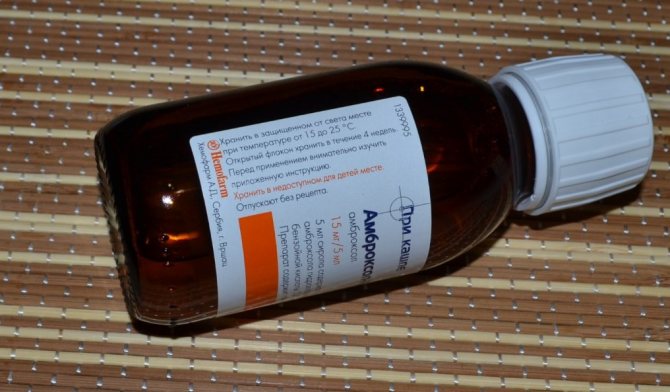
When does a wet cough develop in children?
In most cases, with the onset of autumn, children actively begin to develop a cough, which indicates various diseases associated with both cold weather and the appearance of various bacteria. As a result, children begin to get sick. Cough causes discomfort in both adults and children, but at the same time, with its help, the body fights various irritants.
Thanks to coughing, the child's respiratory muscles contract and thereby push out various phlegm and mucus from them. But since these muscles are not yet strong enough, they need help in the form of medications.
Traditional medicine and manual therapy
Natural ingredients are considered a relatively safe way to alleviate the patient's condition. It should be understood that a 2-month-old child may react to such exposure completely differently than an adult.
It is prohibited to use mustard plasters or any other compresses or applications containing substances that irritate the skin. Possible burns.
Diluted honey and chamomile decoction are good for coughs. The main thing is to strictly monitor the baby’s condition in order to avoid allergic reactions.
Pediatricians recommend periodically performing percussion (drainage) massage. Light pats on the back, chest, and gentle rubbing of the baby with warm hands will increase blood circulation, helping the body cope with the cause of the cough. The impact should be directed from the lower back to the shoulder blades. In this way, the discharge of mucus accumulated in the respiratory tract is stimulated. Manual therapy is not performed on a 2-month-old child if the body temperature is above 37°.
Treatment with medications
Treatment depends on the type and cause of cough
It is very important that parents do not “stuff” their little child with medications for no reason or no reason. You can’t listen to friends, grandmothers or neighbors. Remember, you are responsible for your child. It is better to call a pediatrician, or at least contact him for consultation. In infancy, medications can harm the baby’s health and development, so self-administration of medications is considered a crime.
When choosing a cough remedy for a 2-month-old baby, you must take into account that there are two types of cough - dry and wet. With one, it is necessary to remove the sputum, and with the second, it is also necessary to liquefy it first. Modern medicine provides a wide selection of medicines for newborns, which do not contain chemicals, have a mild and harmless effect and most often have a pleasant sweetish taste, which allows you to give the baby medicine without hysterics.
There is one more nuance when taking expectorants - after them the cough intensifies.
This is considered normal, since the mechanism of operation of such drugs is aimed at increasing and thinning sputum. To get it out, you need to cough. So don’t worry if your child starts coughing more – that’s how it should be.
It is important to consider that if the cough is caused by an infectious disease, then it is necessary to take antiviral drugs. If you have a fever, you can use Nurofen or Paracetamol. Children under one year of age are strictly prohibited from using Analdim (suppositories or injections with the composition Analgin + Diphenhydramine).
You can learn more about how to properly massage a cough from the video:
Traditional methods of treatment
Although traditional medicine is considered loyal, inexpensive and effective, if it is not used skillfully, it can harm the health of your child. You must first consult with doctors and take into account the age of the children.
Features of delicate skin (mustard plasters are prohibited) and the possibility of an allergic reaction (especially to products of bee origin). It’s the 21st century outside and you don’t need to listen to grandmothers who recommend floating your feet, putting out jars and giving honey in tablespoons. Such a benefit can leave burns or cause allergies. Warming with salt, honey, onion, lemon and other methods are prohibited for children under 6-9 months.
Two-month-old babies can be given herbal infusions in small quantities - it is best to use chamomile and do massages.
Massage for coughs
We massage your child correctly!
When an infant coughs, massages are effective. Percussion massage has several positive effects:
- Gently rubbing the baby’s skin with warm mother’s hands increases blood circulation, which activates intracellular processes, and the disease goes away faster
- lightly patting the back (not the spine) or the chest, creates vibrations due to which the sputum is more quickly separated from the bronchi and comes out with a cough
General recommendations from experts
In order to avoid the appearance of symptoms of acute respiratory viral infections, acute respiratory infections, and allergic reactions, it is necessary to ensure comfortable conditions in the room. Most pediatricians agree that the optimal air temperature in a child’s room during sleep should not exceed 25°. It is important to regularly ventilate the apartment and use household steam generators (analogous to moisturizing inhalation).
Daily walks in the fresh air will not be amiss. Babies at 2 months should be dressed according to the weather. If a child sweats in the cold, then most likely a cold is guaranteed. The best prevention of cough and runny nose is breastfeeding. Mother's milk contains all the necessary elements to support immunity. Therefore, you should not start complementary feeding too early.
Why does the baby cough?
A cough in a 2 month old baby is not uncommon. Mucus, dead cells, dust and microorganisms activate the cough center in the brain. A protective reflex is triggered, the larynx, trachea, bronchi and lungs are freed from unnecessary substances. The mixing and removal of mucus with irritants is facilitated by the movement of cilia in the respiratory tract.
Experts distinguish the following types of cough:
- dry, barking (unproductive);
- wet, with phlegm (productive);
- acute (lasts up to 8 weeks);
- chronic (lasts over 8 weeks).
There are many factors that cause a cough in a two-month-old baby, but most of them are harmless. Among the safe causes, pediatricians name excessive salivation and teething. A two-month-old baby sleeps most of the day, the remains of breast milk and saliva accumulate in the throat, irritating the mucous membrane. The reflux of gastric contents into the esophagus and trachea is considered a likely cause of cough at night and in the morning.
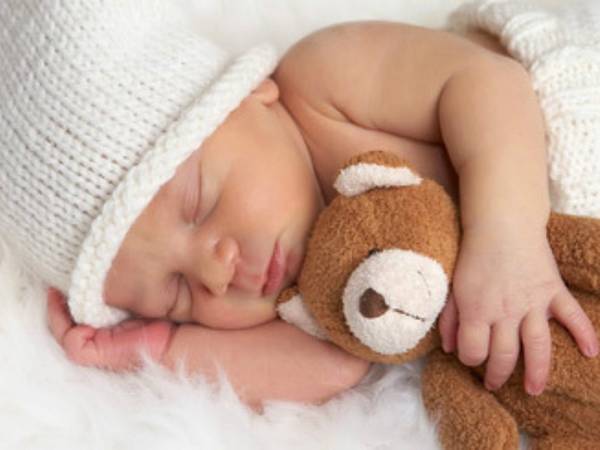
The nasal passages in babies are narrow and short, the mucous membrane is poorly developed. When insufficiently warmed air, poorly purified from dust and infection, enters the respiratory tract, diseases can develop (ARVI, bronchitis, whooping cough, bronchiolitis, pneumonia). A dry cough torments a child with pseudo-croup with swelling of the tracheal mucosa. The baby's respiratory tract is constantly irritated by the strong smells of perfumes, text messages, and cigarette smoke. Chronic cough occurs with immunodeficiency, allergies, and bronchial asthma.



